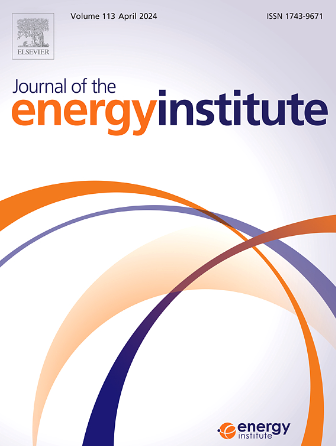氨作为柴油发动机的可持续燃料:探索绿色交通的先进燃烧策略
IF 6.2
2区 工程技术
Q2 ENERGY & FUELS
引用次数: 0
摘要
对内燃机碳排放的日益关注引发了人们对替代燃料的兴趣。虽然像甲醇和甲烷这样的低碳燃料可以减少一些排放,但氢(H2)和氨(NH3)等无碳燃料具有更大的减排潜力。氨广泛用于农业,由于其已建立的基础设施而特别具有吸引力。它还提供了一种很有前途的储氢方法。值得注意的是,绿色NH3生产方法使用可再生能源,使其成为可持续的替代品。本文综述了氨作为压缩点火(CI)发动机替代燃料的研究进展。它探讨了各种操作条件下的燃烧、性能和排放特性,包括混合、双燃料(DF)和采用各种低温燃烧(LTC)策略,以优化性能并最大限度地减少排放。讨论了加氢对NH3燃烧的影响。此外,本文还回顾了计算流体动力学(CFD)模拟的进展,以加深对内燃机中NH3燃烧的理解。NH3为显著减少内燃机的温室气体排放提供了一条很有前景的途径。它的潜力是巨大的,特别是用于DF模式的CI发动机和先进的技术,如优化氨/柴油方案和喷射策略的反应性控制压缩点火(RCCI)。将氨气与先进的燃烧技术相结合,可以为以内燃机为基础的交通运输提供可持续的未来。本文章由计算机程序翻译,如有差异,请以英文原文为准。

Ammonia as a sustainable fuel for diesel engines: Exploring advanced combustion strategies for green transportation
The increasing concern over carbon emissions from IC engines has sparked interest in alternative fuels. While low-carbon fuels like methanol and methane offer some emissions reduction, carbon-free fuels such as hydrogen (H2) and ammonia (NH3) hold the potential for more significant reductions. Ammonia, widely used in agriculture, is particularly attractive due to its established infrastructure. It also offers a promising method for storing hydrogen. Notably, green NH3 production methods using renewable energy sources, making it a sustainable alternative. This review examines research on using NH3 as alternative fuel for compression ignition (CI) engines. It explores the combustion, performance, and emission characteristics of various operating conditions, including blending, dual-fuel (DF), and adoption of various low-temperature combustion (LTC) strategies, to optimise performance and minimise emissions. The influence of hydrogen addition on NH3 combustion is also discussed. Additionally, advancements in computational fluid dynamics (CFD) simulations are reviewed to enhance the understanding of NH3 combustion in IC engines. NH3 offers a promising pathway to significantly reduce GHG from IC engines. Its potential is significant, especially when used in CI engines with DF mode and advanced techniques like reactivity-controlled compression ignition (RCCI) with optimised ammonia/diesel propositions and injection strategies. Combining ammonia with advanced combustion could offer a sustainable future for IC engine-based transportation.
求助全文
通过发布文献求助,成功后即可免费获取论文全文。
去求助
来源期刊

Journal of The Energy Institute
工程技术-能源与燃料
CiteScore
10.60
自引率
5.30%
发文量
166
审稿时长
16 days
期刊介绍:
The Journal of the Energy Institute provides peer reviewed coverage of original high quality research on energy, engineering and technology.The coverage is broad and the main areas of interest include:
Combustion engineering and associated technologies; process heating; power generation; engines and propulsion; emissions and environmental pollution control; clean coal technologies; carbon abatement technologies
Emissions and environmental pollution control; safety and hazards;
Clean coal technologies; carbon abatement technologies, including carbon capture and storage, CCS;
Petroleum engineering and fuel quality, including storage and transport
Alternative energy sources; biomass utilisation and biomass conversion technologies; energy from waste, incineration and recycling
Energy conversion, energy recovery and energy efficiency; space heating, fuel cells, heat pumps and cooling systems
Energy storage
The journal''s coverage reflects changes in energy technology that result from the transition to more efficient energy production and end use together with reduced carbon emission.
 求助内容:
求助内容: 应助结果提醒方式:
应助结果提醒方式:


